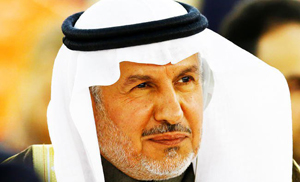Ottawa, May 7: Royal Court Adviser and General Supervisor of the King Salman Center for Relief and Humanitarian Aid (KSRelief) Abdullah Al-Rabeeah, underscored the Kingdom’s leading role in humanitarian work and its commitment to the international humanitarian law, which corresponds to the teachings of Islam that call for the preservation of human dignity and sparing mankind suffering.
 Al-Rabeeah who is visiting the province of Ottawa made his remarks in the presence of Saudi Ambassador to Canada Naif bin Bandar Al-Sudairi and a group of Canadian journalists whom he briefed on KSRelief’s vision and message, stressing its commitment to international law and collaboration with the UN and other global humanitarian organizations.
Al-Rabeeah who is visiting the province of Ottawa made his remarks in the presence of Saudi Ambassador to Canada Naif bin Bandar Al-Sudairi and a group of Canadian journalists whom he briefed on KSRelief’s vision and message, stressing its commitment to international law and collaboration with the UN and other global humanitarian organizations.
He said the Kingdom has been showing utmost concern for the humanitarian situation in Yemen, sending aid to all Yemeni provinces, including areas controlled by the Houthi militia, through KSRelief programs.
KSRelief carried out 127 projects in Yemen providing relief and humanitarian aid, as well as shelter, in addition to agricultural and water programs, Al-Rabeeah said.
KSRelief was able to reach everywhere in Yemen through 81 international and local partners; its programs place special emphasis on children and women projects, he said.
Al-Rabeeah said Saudi Arabia received 603,833 Yemeni refugees with their families who are allowed to move freely and work.
Beyond its borders, the Kingdom offered support to Yemeni refugees in Djibouti and Somalia, he added.
At the same time, the Kingdom, he said, was among the first countries to give support to the Syrian people, of whom it welcomed 291,342 as refugees, allowing them to live in the Kingdom as guests.
Thousands of them work and 114,000 Syrian students are enrolled in government schools. At the same time, similar support is given by the Kingdom to millions of refugees in neighboring countries, he added.
Al-Rabeeah also stressed the Kingdom’s concern over the humanitarian situations in Iraq, Somalia and other disaster-hit countries.
Through KSRelief, the Kingdom has so far provided $700 million worth of aid to 37 countries, he said.
He also spoke about the difficulty of delivering aid through Al-Hudeidah port in Yemen, in view of the fact that the fell under the control of Houthis who seize aid, depriving the Yemeni people of their simplest rights for political ends.
Al-Rabeeah also talked about the Kingdom’s Vision 2030 and the National Transformation Program (NTP) 2020 that aim at building a strong economy and creating job opportunities, and encourage humanitarian and voluntary work.
He stressed that the Arab Coalition forces facing terrorism is performing its role in response to the call of the Yemeni people and in line with the outcome of the national dialogue, UN resolutions and GCC initiative.





Comments
Add new comment